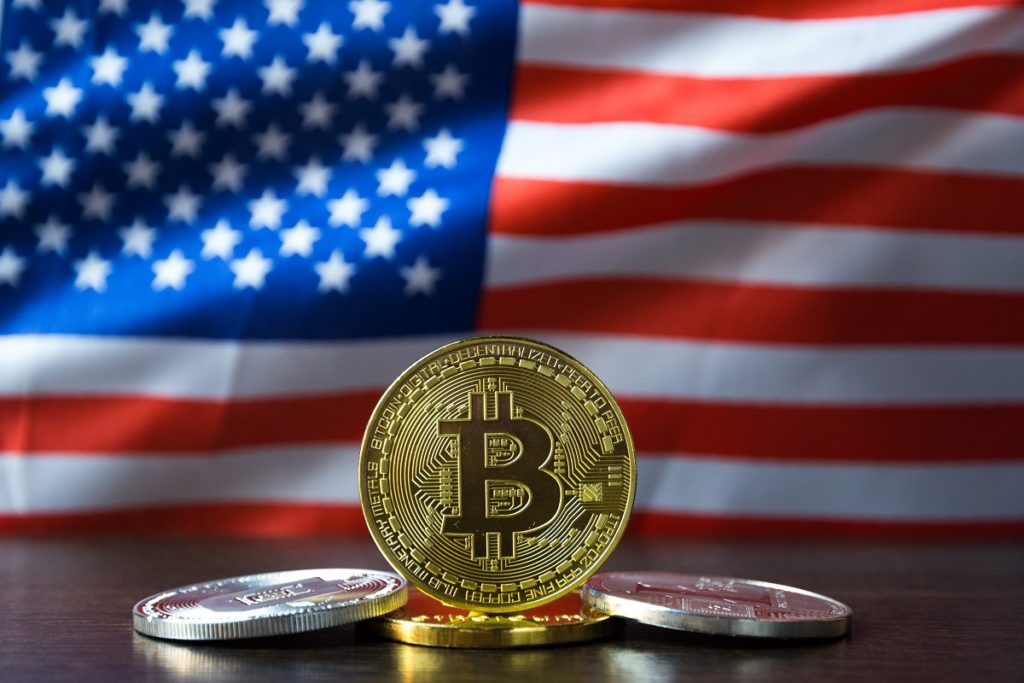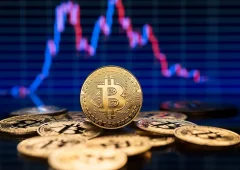Trump Establishes Strategic Bitcoin Reserve in Landmark Executive Order
07.03.2025 10:50 2 min. read Alexander Stefanov
In a major policy shift, President Trump has signed an Executive Order to establish a Strategic Bitcoin Reserve, positioning the U.S. as a major player in the digital asset space.
The initiative leverages Bitcoin already in government possession, obtained through asset forfeiture, eliminating costs to taxpayers.
An estimated 200,000 Bitcoin are under federal control, though an audit has never been conducted. The order mandates a full review of digital asset holdings and ensures that Bitcoin in the reserve will not be sold, treating it as a long-term strategic asset. Previous liquidations of seized Bitcoin have reportedly led to over $17 billion in missed gains.
Key Directives
- Preserving Bitcoin Holdings: The government will hold onto its Bitcoin rather than selling it.
- Comprehensive Audit: A full review of all federal digital asset holdings will be conducted.
- Acquisition Strategies: Treasury and Commerce officials will explore cost-free methods to expand the reserve.
- Digital Asset Stockpile: A separate initiative will manage non-Bitcoin digital assets obtained through forfeiture without additional acquisitions.
U.S. Strengthening Its Crypto Position
Framing Bitcoin as “digital gold,” the administration seeks to secure America’s leadership in the crypto sector. The policy shift aligns with a broader strategy to integrate digital assets into national economic planning, emphasizing stability and growth.
The effort was spearheaded by Treasury Secretary Scott Bessent, Commerce Secretary Howard Lutnick, and the President’s Working Group on Digital Asset Markets. David Sachs, the former U.S. Crypto Czar under the Trump administration, praised the move, highlighting its role in positioning the U.S. as a leader in digital assets.
A New Era for Bitcoin Policy
This decision marks one of the most aggressive government moves into cryptocurrency, reinforcing the idea that Bitcoin could play a lasting role in financial strategy. With the U.S. now actively holding digital assets, the move is set to reshape how governments approach crypto on a global scale.
-
1
Bitcoin Reaches $119,000 Milestone as Corporate Demand and ETF Inflows Rise
13.07.2025 17:45 2 min. read -
2
Bitcoin Price Prediction From Bernstein After the Recent All-Time High
14.07.2025 20:00 1 min. read -
3
Ethereum Sparks Altcoin Season as FOMO Shifts Away From Bitcoin
17.07.2025 18:30 2 min. read -
4
Bitcoin Price Hits Record Highs as Exchange Balances Plunge
12.07.2025 19:00 2 min. read -
5
Robert Kiyosaki Reacts to Bitcoin’s Surge Past $120K: “I’m Buying One More”
14.07.2025 17:00 1 min. read
Bitcoin Funding Rates Stay Elevated—Rally Ahead or Shakeout Coming?
As Bitcoin continues to consolidate above $100K, a critical market signal is flashing: BTC funding rates remain elevated, even as price action cools.
Billionaire Ray Dalio Revealed What his Portfolio Says About the Future of mMoney
Billionaire investor Ray Dalio, founder of Bridgewater Associates, has suggested that a balanced investment portfolio should include up to 15% allocation to gold or Bitcoin, though he remains personally more inclined toward the traditional asset.
Where Is The Smart Entry Point For Bitcoin Bulls?
With Bitcoin hovering near $119,000, traders are weighing their next move carefully. The question dominating the market now is simple: Buy the dip or wait for a cleaner setup?
Matrixport Warns of Bitcoin Dip After Hitting This Target
Bitcoin has officially reached the $116,000 milestone, a level previously forecasted by crypto services firm Matrixport using its proprietary seasonal modeling.
-
1
Bitcoin Reaches $119,000 Milestone as Corporate Demand and ETF Inflows Rise
13.07.2025 17:45 2 min. read -
2
Bitcoin Price Prediction From Bernstein After the Recent All-Time High
14.07.2025 20:00 1 min. read -
3
Ethereum Sparks Altcoin Season as FOMO Shifts Away From Bitcoin
17.07.2025 18:30 2 min. read -
4
Bitcoin Price Hits Record Highs as Exchange Balances Plunge
12.07.2025 19:00 2 min. read -
5
Robert Kiyosaki Reacts to Bitcoin’s Surge Past $120K: “I’m Buying One More”
14.07.2025 17:00 1 min. read


